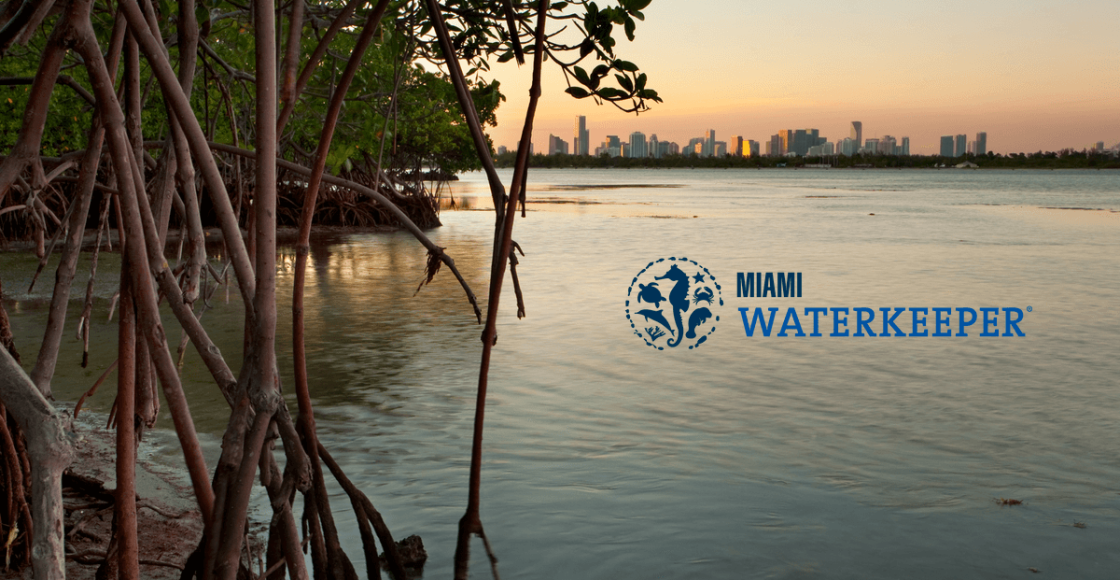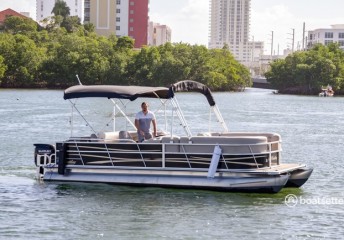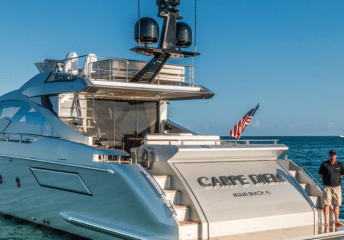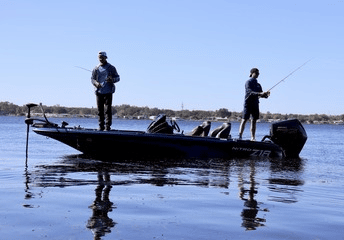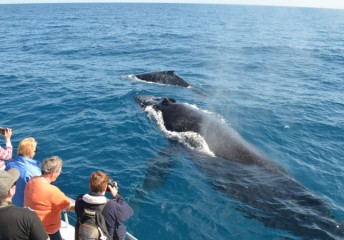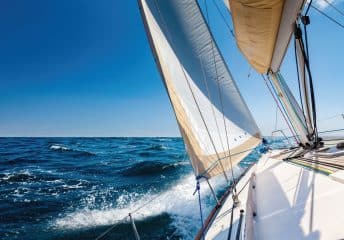Miami Waterkeeper: Protecting the Water You Love | #MindYourWake Series
Last Updated on June 3, 2022 by Boatsetter Team
Florida has 8,000 miles of coastline and upwards of 800 miles of beaches for swimming, boating, and other activities. Additionally, about half a million people earn their income from Florida’s ocean-oriented activity. However, a variety of man-made issues threatens all of this. That’s where Miami Waterkeeper comes in. It has been shedding a light on problems and advocating for protection for the past 12 years.
More important, it’s having an impact. Miami Waterkeeper has initiatives like a community-led pollution detection and reporting program. Residents have discovered algae blooms, for instance, and illegal dumping. Additionally, the organization has taken more than 1,000 water-quality samples to ensure safe swimming conditions. And, it’s not only successfully proposed environmental regulatory changes, but also uncovered problems like ignored sewage leaks, getting action within days.
“Clean water is what makes Miami, Miami,” says Rachel Silverstein, the non-profit’s executive director. “Biscayne Bay is our ecological and aesthetic jewel and sits at the heart of our community.”
Learn more about Boatsetter’s #MindYourWake sustainability initiatives.
What is Miami Waterkeeper’s Mission?
“Waterkeeper” indicates that it belongs to a global network of more than 350 clean-water advocates within the Waterkeeper Alliance. Each Waterkeeper protects a specific waterway. Those of you in New York may be familiar with the plight of the Hudson River in the 1960s, when it was dying from pollution and neglect. Commercial and recreational fishermen banded together to use a decade-old law to protect the river. This citizen-led advocacy served as the Waterkeeper Alliance bedrock.
Silverstein, who’s been fascinated with marine environments since childhood, joined the organization in 2014. Wishing “to protect the waters that I had studied in graduate school,” she jumped into action—with no other full-time staff. She learned that, in dredging the Port of Miami from 2013 to 2015, the U.S. Army Corps of Engineers illegally buried more than 250 acres of coral reef in sediment.
“Within weeks, we filed an Endangered Species Act lawsuit, and after five years of litigation, we eventually secured the rescue of listed corals and the restoration of 10,000 staghorn corals,” Silverstein notes. Plus, following a year of “difficult scientific analysis,” Miami Waterkeeper published the definitive documentation of coral damage. More than 560,000 had been killed.
Explore Boat Rentals in Miami, FL
Protecting Clean Water
Miami Waterkeeper—now with more than 10 full-time staffers—is well versed in other federal regulations, too. It regularly educates the public about the Clean Water Act, for instance. This sets standards to prevent, reduce, and eliminate pollution in U.S. waters. Clean water is vital not just for drinking, but also—key to the South Florida lifestyle—swimming and fishing.
One of its clean-water educational programs is the volunteer-based 1000 Eyes on the Water.
- Citizens learn to observe, document, and report pollution they see in their daily lives.
- The pollution can be an oil slick, an algae bloom, fish kills, or even a leaking dumpster.
- It can also be activity, like illegal dumping.
- Similarly, Miami Waterkeeper trains 1000 Eyes on the Water volunteers to identify rare and endangered species like smalltooth sawfish and sea turtles, to ensure they’re okay.
Then there’s the Junior Ambassador initiative.
- This year-long program turns high-school students into environmental leaders.
- Specifically, they participate in water-sample collections and quality assessments, beach cleanups, and more.
- Civic engagement and advocacy, public-speaking skills, and leadership skills are further lessons. More than 80 students have graduated from the program since 2016.
Silverstein is particularly inspired by one recent student, Jaïm Steele. Steele noticed many in his community disagreed on using residential trash bins to dispose of sealed pet-waste bags.
“Pet waste, when not properly disposed of, can contribute to nutrient loading in storm-water runoff,” Silverstein explains.
This in turn can cause algae blooms and seagrass dying. Steele therefore launched the creative “Yes Poo, No Poo” campaign, where residents order a yea-or-nay sticker for their trash can from his website. The site additionally shines a light on Miami Waterkeeper’s efforts and other causes close to Steele’s heart.
Protecting the Ecosystem
Miami Waterkeeper further strives to ensure ecosystems like coral reefs, mangroves, wetlands, and seagrasses remain healthy. Each of these plays an important role, ranging from shoreline protection to wildlife habitat. Seagrasses, for instance, reduce erosion, are food for manatees, and serve as nurseries for juvenile fish and invertebrates.
Miami Waterkeeper has been particularly effective in getting enforcement for the Endangered Species Act and the National Environmental Protection Act. Currently, it’s also among a few co-plaintiffs suing the Environmental Protection Agency. In January 2021, the federal agency transferred primary regulatory authority of Floridian wetlands from the U. S. Army Corps of Engineers to the state. “The assumption of this program by the under-resourced state environmental agency effectively rubber-stamps the development of fragile wetland habitats,” Silverstein asserts. She encourages the fishing community and other concerned citizens to make their voices heard.
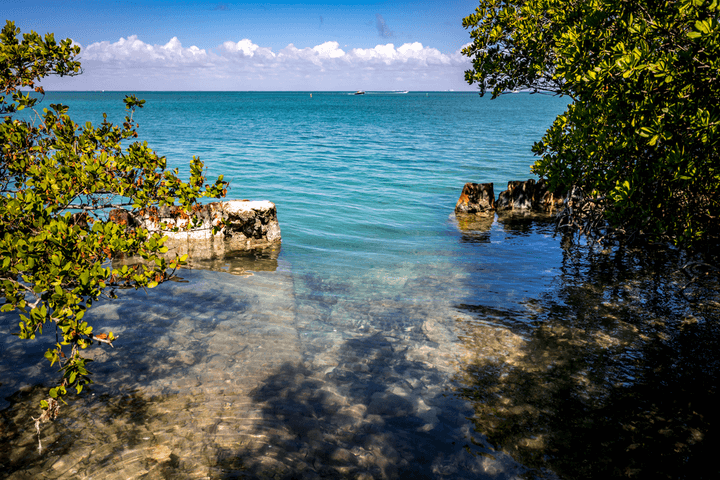
Advocating for regulatory change and empowering the community will remain at the heart of what Miami Waterkeeper does for years to come.
“Our work always starts with a strong foundation rooted in science,” Silverstein explains, allowing it to develop policy goals and strategically reach out to lawmakers and citizens. When it comes to Biscayne Bay, “thousands of people sail, kayak, swim, and fish its waters every year, and it is home to mangrove forests, seagrass meadows, and over a dozen threatened and endangered species,” she continues. “Its health and well-being are imperative to our way of life.”
To learn more, donate, or volunteer, visit Miami Waterkeeper.
Read other stories within our #MindYourWake Series:

A journalist with more than 30 years’ experience, Diane M. Byrne is the owner
of MegayachtNews.com, a daily website educating American superyacht owners, buyers, and
their circles of influence about the leading builders, designers, cruising destinations, and more.
She founded the website in 2007 as the first, and still the only, American-focused online media
outlet exclusively covering this market. It features all-original content, for real stories of real
interest.
Diane is additionally one of the most-sought-after journalists for expert editorial coverage and
commentary about not only superyachts, but also general boating and yachting. Her byline
appears in Boatsetter.com, DiscoverBoating.com, and the magazines Luxury Guide, Ocean,
Yachting, and Yachts International.
Additionally, Diane is the Chair of the U.S. Superyacht Association, having been on the Board of
Directors since 2015. Outside of yachting, she’s a trustee of Sempre Avanti, a non-profit
resource supporting Italian and Italian-American individuals, businesses, and organizations in the
United States and Italy.
